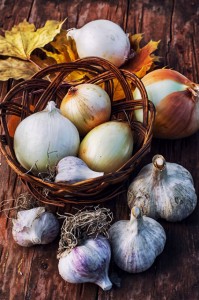 Did you know that inside your body there are about 100 trillion cells that when fed correctly will keep you feeling great? And what’s more, not one of these cells is human. They’re in you and they’re on you, but they’re not you.
Did you know that inside your body there are about 100 trillion cells that when fed correctly will keep you feeling great? And what’s more, not one of these cells is human. They’re in you and they’re on you, but they’re not you.
Yes, I’m talking about the beneficial microbes that live inside you and govern the health of your digestive system. Now, these microbes, called probiotics, have a favorite food, and when they get a steady supply of their favorite food, they multiply, stay strong and protect you from harmful microbes.
A healthy population of probiotics is now recognized as a mainstay for optimal health. When that population gets diminished and the bad guys begin to take over, your health may deteriorate in many ways. Dysbiosis is the term used for an unhealthy, imbalanced ratio of good to bad microbes in the gut. Dysbiosis can cause irritable bowel, leaky gut, diarrhea, constipation, crohn’s, colitis and, believe it or not, even weight gain, cravings and depression.
One of the best and fastest ways to get your insides feeling happy again is by feeding your little friends, these probiotics, the stuff that makes them thrive. Technically, the stuff that makes them thrive is called “prebiotics,” but to your probiotic microbes, they are their manna from heaven. Prebiotics are actually specific fibers found in plant foods. Your body doesn’t actually digest these fibers; however, your good bacteria happily ferments them and creates all kinds of beneficial nutrients. And all you have to do is eat the foods rich in these fibers, or you can supplement them.
Here is a list of the Top 10 Prebiotic rich foods:
- Chicory root
- Jerusalem artichoke
- Dandelion greens
- Guar seed
- Garlic
- Onions
- Leeks
- Asparagus
- Broccoli
- Cabbage
As you can see, the age-old recommendation of “eat your vegetables” doesn’t get any less true. Now you have yet another very important reason to get your 5 to 9 daily servings. Obviously, some of these foods are not on everyone’s daily diet. So you can always supplement with any of the prebiotic products available. They will contain either inulin, FOS, (Fructo-Oligo-Sacharrides) or PHGG (Partially Hydrolyzed Guar Gum). Actually, all are just the fancy names for the specialized fibers that make up prebiotics.
So which is better: to get prebiotics from your diet or from supplementation? Well, if you got them from your diet, it would certainly mean you’re eating lots of vegetables … and that’s a good thing. However, your probiotic friends don’t really care. So in the end, it’s a matter of practicality and your specific need. Even though chicory and Jerusalem artichoke contain a very high concentration of prebiotic fibers, they are not very practical as an everyday food item.
Chicory = 64% prebiotic fiber by weight
Jerusalem artichoke = 32% prebiotic fiber by weight
Asparagus, broccoli, cabbage = 5% prebiotic fiber by weight
As you can see, the vegetables you are more likely to eat have a low fiber content. You need at least 8 to 12 grams of prebiotic fiber per day. That translates into about 2-6 servings of raw vegetables and 3 to 9 servings of cooked vegetables. If you can get more, it’s recommended. So, depending on your vegetable consumption (fruits contain some prebiotic fiber at lower concentrations), supplementation may not be a bad idea.
Typically, a recommended single dose in a concentrated supplement is 4 grams. If you have a digestive illness or condition of some kind, then supplementation becomes a little more important. If you have an inflammatory condition like IBS, crohn’s disease or colitis, then you have to be careful about the type of fiber you use. Your sensitive gastro-intestinal tract does not tolerate gritty, harsh types of fiber. It’s the new kid on the block that I mentioned before, PHGG, that is recommended for inflammatory conditions of the gut. What’s more it’s odorless, tasteless and has no grit.
It really is true that keeping your friendly microbes well fed will keep you happy inside in more ways than one. And the key to all this inner happiness is good nutrition for both you and your 100 trillion friends.
Feedback